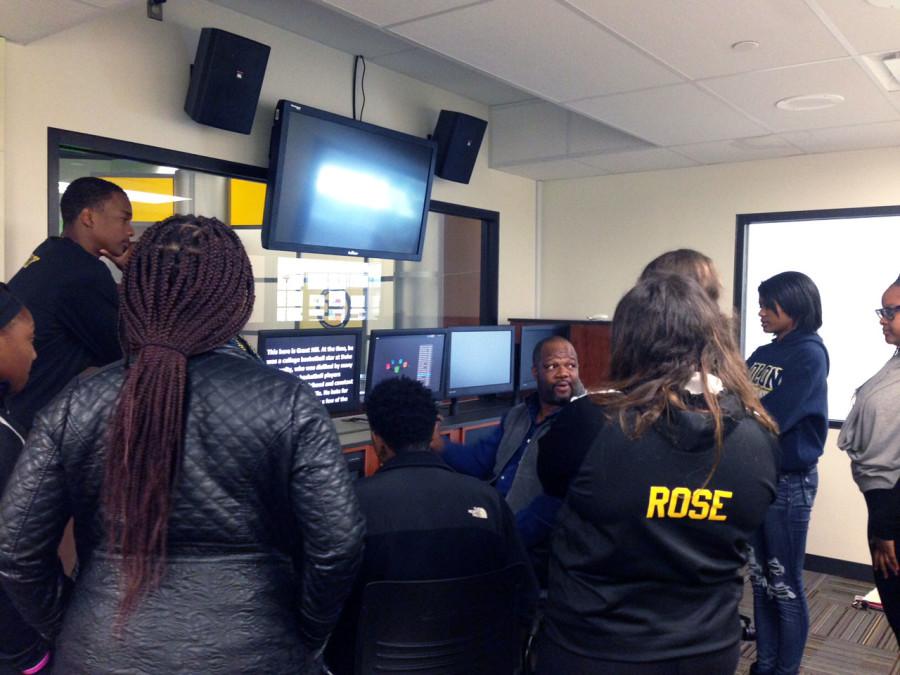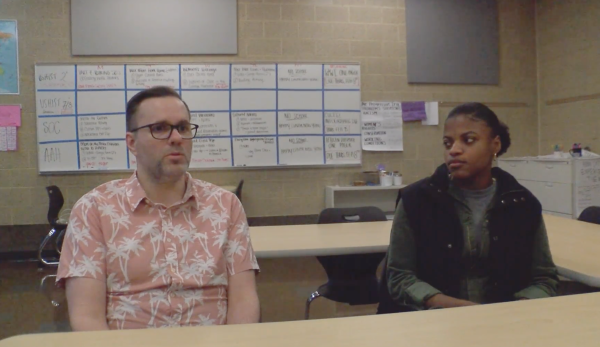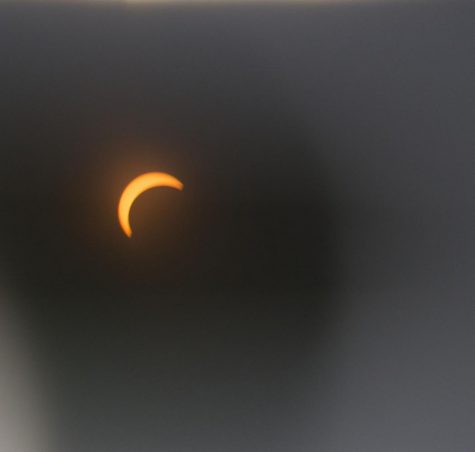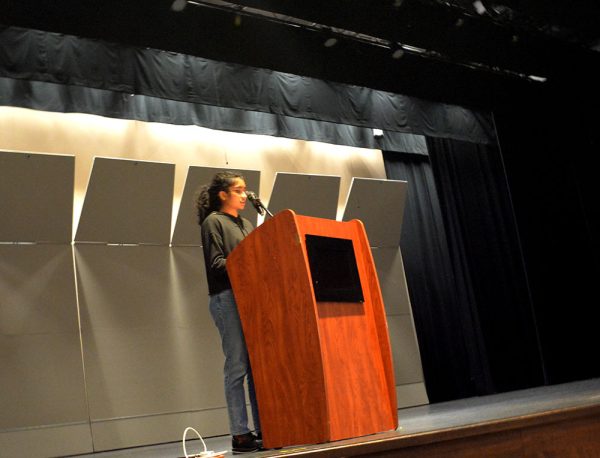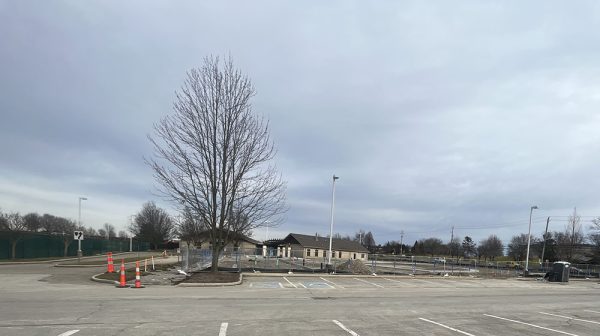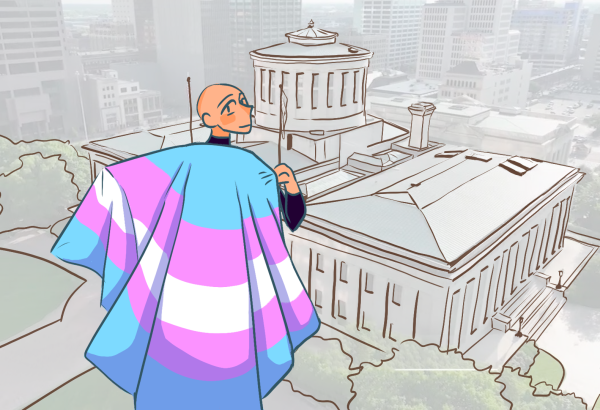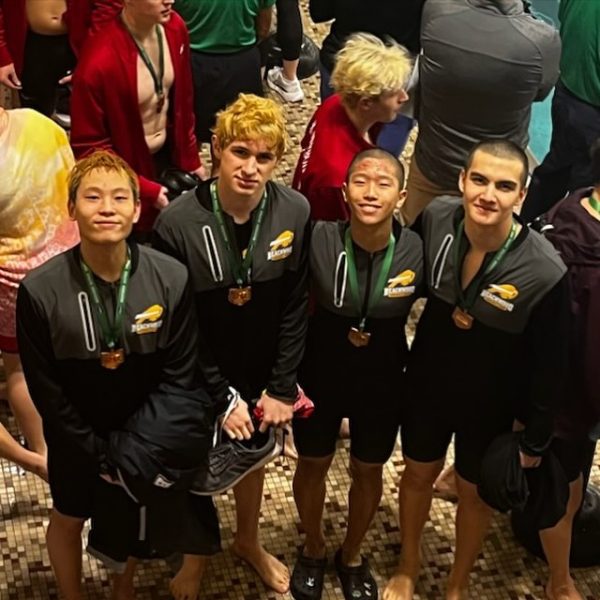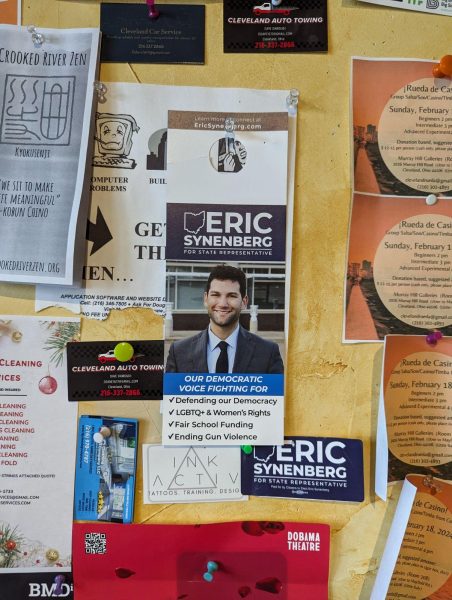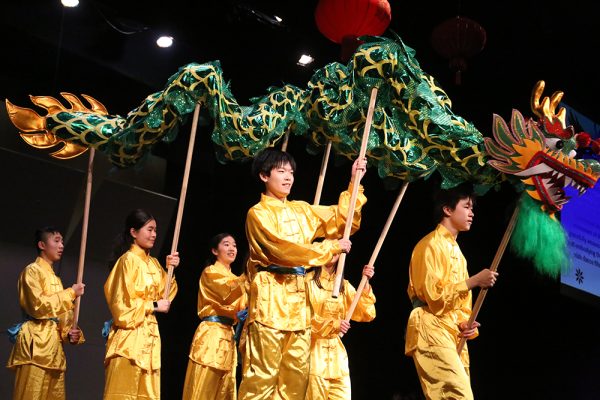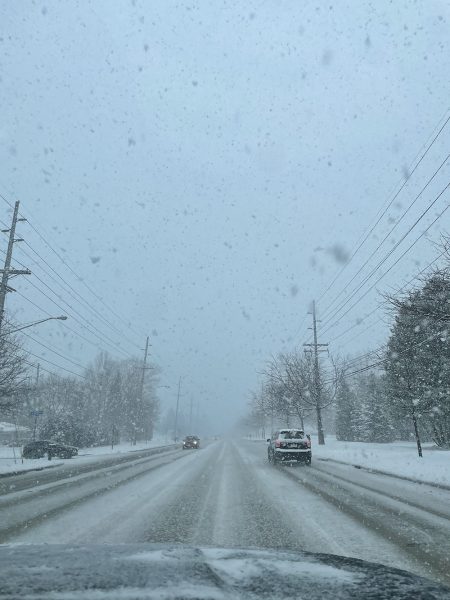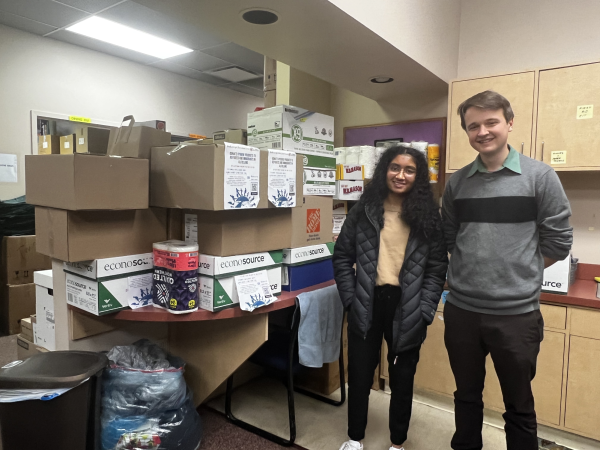New Class Connects Past and Present of African American Experience
Due to strong student interest, English teacher Casey Matthews has been able to extend African American Literature to a full year elective.
On an October afternoon, students walked into English teacher Casey Matthews’ classroom, showing more eagerness to learn than is typical for high school students.
“I decided to take the class because I was already very interested in African American history and literature,” junior Chelsea Hodge said.
“It’s very interesting and I learn a lot of stuff that I just did not know prior to taking the class,” she added.
Matthews’ African American literature class was beginning a new unit on the Harlem Renaissance.
She asked students what they already knew about the time period, followed by a lecture from a PowerPoint and video clips. Students were engaged and focused.
Matthews’ passion for the subject was obvious. Although the lesson focused on literature from the 1920s and 1930s, she also made connections to gentrification in Harlem today.
[The course was designed as] a semester-long class covering the range of African American literature starting with slave narratives and ending with more modern pieces, covering everything in between.
— English teacher Casey Matthews
This unit is just one piece of Matthews’ literature course, offered for the first time this year, focusing on the full scope of the African American experience.
“[The course was designed as] a semester-long class covering the range of African American literature starting with slave narratives and ending with more modern pieces, covering everything in between,” Matthews explained.
After the disappointment of not having enough students enrolled last year, Matthews is very excited to see the class taking off now.
Due to strong student interest, Matthews has been able to extend it this year to a full year elective.
Hodge displayed a great deal of excitement while discussing the class.
“You learn a lot that you can’t really get from another course,” she said.
One of the many reasons Hodge decided to take the class is that she admires Matthews’ enthusiasm for the topic.
“Part of my Master’s degree [from University of New Orleans focused on] African American literature, so it’s been a long-time passion of mine,” Matthews said.
Students learn through many different methods, such as reading literature, writing journals and watching documentaries.
The level of coursework is not overwhelming, senior Katie Platt said.
“The reading is interesting to the point where I don’t feel that I have a lot of work to do,” Hodge said.
Platt agrees, adding that she finds the slave narratives particularly fascinating.
“Along with [reading the narratives], we wrote an essay comparing and contrasting the lives of Harriet Jacobs and Frederick Douglass, and I found it to be very interesting,” she said.
The class tackles many thematic concepts and teaches students important lessons.
One theme that stands out to Hodge is the importance of learning from the mistakes of the past.
“History repeats itself,” Hodge said. “Many things we have seen in the past are making their way to the present day.”
Recent instances of police brutality and shootings of African Americans have made the issues addressed by the class all the more relevant.
In Hodge’s eyes, it is important to recognize these recent occurrences of racism and connect them to what African Americans have endured throughout history.
Aside from learning the history of the African American experience, Matthews said students learn to connect the past to the present day racial tensions in America, and they must be willing to have intense discussions about race.
“All races are welcome in this class. It may get uncomfortable at times, but it is worth it,” Platt said.
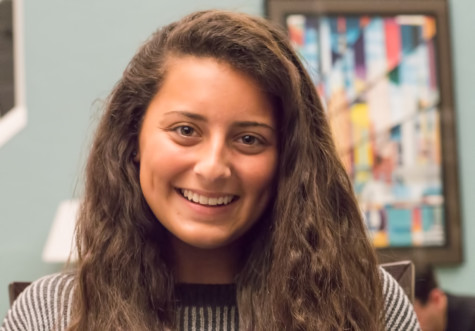
Sydney Eisenberg is a senior, and although she just started writing for the Beachcomber this year, she is excited to be a part of the newspaper. She is...



